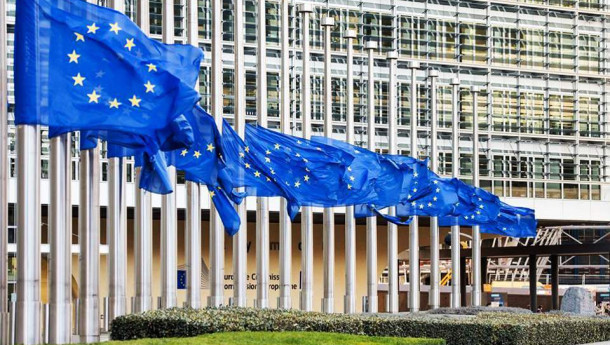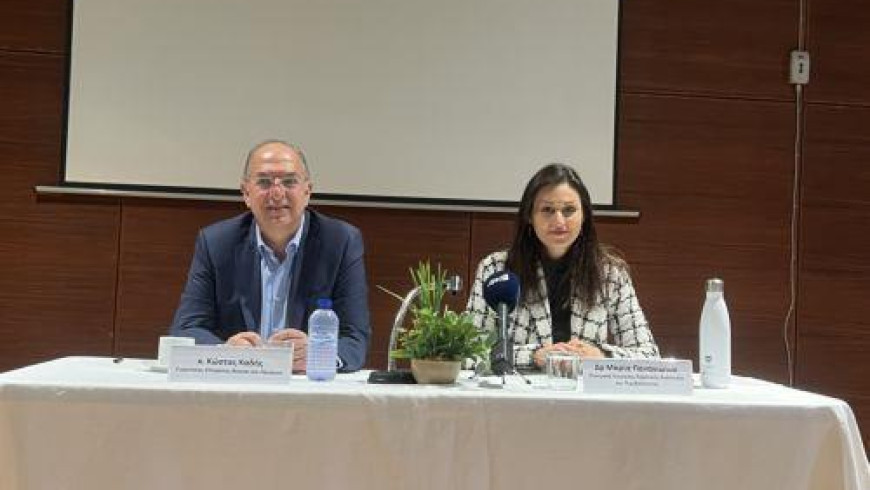
The European Commission has recommended the modernisation of the governance of the Cyprus Broadcasting Corporation, in particular regarding the appointment and dismissal of its board members, in the context of the chapter on Cyprus of its third annual Rule of Law Report which was published on Wednesday.
The Commission has also called on Cyprus to ensure that reforms regarding the appointments to the new Supreme Constitutional Court and High Court take into account the relevant opinion of the Venice Commission.
The report also points out the need for improving the effective investigation and adjudication of high-level corruption cases, including by strengthening the Office of the Attorney General and its budgetary independence.
The report structures its findings and recommendations around four parameters of the rule of law: justice reforms, anti-corruption frameworks, media freedom and pluralism and institutional checks and balances.
Speaking during the presentation of the report, Commission Vice President for Values and Transparency Vera Jourova said that this year’s edition particularly focuses on the protection of public service media, while Commissioner for Justice Didier Reynders recalled that corruption cases need to be effectively and fully investigated.
The Commission calls on Cyprus, in addition to commitments already made under the national Recovery and Resilience Plan relating to certain aspects of the justice system and the anti-corruption framework, to:
- Ensure that the reform on the appointment of the Supreme Constitutional Court and High Court judges takes into account European standards on judicial appointments and the opinion of the Venice Commission.
- Ensure that the reform on the composition of the Supreme Council of the Judicature takes into account European standards regarding Councils for the Judiciary and the opinion of the Venice Commission.
- Continue to improve the effective investigation and adjudication of high-level corruption cases, including by strengthening the Office of the Attorney General and its budgetary independence.
- Introduce rules on asset disclosure for elected officials to establish regular and comprehensive filing, combined with effective, regular and full verifications.
- Strengthen the rules and mechanisms to enhance the independent governance of public service media taking into account European standards on public service media.
- Establish a framework for the effective and timely consultation of stakeholders in the legislative process.
Justice reforms
The report notes that “the structural reforms of the Cypriot justice system which are being elaborated by the Government are progressing, albeit with delays”.
“The draft legislation on the splitting of the current Supreme Court, voted by Parliament on 7 July 2022, raises certain concerns regarding the procedure of the appointment of judges in the future Supreme Constitutional Court and the High Court and the composition of the Supreme Council of the Judicature” the summary of the chapter on Cyprus notes, adding that the Venice Commission has issued recommendations on this issue.
According to the report, the planned strengthening of the budgetary independence of the Law Office by the Government is delayed, while the justice system continues to face serious challenges as regards its efficiency but digital solutions are being applied and planned.
The new rules of civil procedure are being implemented and expected to have a positive impact on the general efficiency of the justice system. Further reforms aim at overcoming important challenges for the efficiency and quality of the justice system, in particular through digitalisation.
It is also noted that the bill establishing the Commercial and the Admiral Court was adopted by the House of Representatives on 12 May 2022.
Anti-corruption framework
On corruption, it is pointed out that Cyprus has enacted the law on the protection of whistleblowers and the law on the transparency of lobbying.
However, “the legislation on asset disclosure for elected officials remains pending before the Parliament”.
The institutional framework was also advanced with the establishment by law of a National Anti-Corruption Authority, and the implementation of the anti-corruption plan has continued it is also pointed out.
“Despite the increased resources allocated to the Attorney General’s Office, results on the investigation and adjudication of high-level corruption cases are lacking” the summary notes. The implementation of integrity rules for specific sectors of the administration shows results, although no progress was made for the general public administration.
The scheme for citizenship through investments was phased-out to address the recommendations of an inquiry commission, the Commission adds.
Media freedom and pluralism
“Freedom of expression and the right of access to information find legal and formal protection in the Constitution. Secondary legislation expressly ensures protection of journalistic sources, fosters media pluralism in the radio and television sectors and establishes the framework and conditions for public access to information” according to the summary.
“Laws adopted in 2021 expressly declare the independence of the Cyprus Radio and Television Authority and media ownership transparency. While the Law on the Cyprus Broadcasting Corporation (CyBC) lays down rules on the governance and financing of public service media, certain weaknesses have been identified relating to the appointment and dismissal of CyBC’s board members” it is also pointed out.
A modernisation of the Law on the Cyprus Broadcasting Corporation as well as of the rules regulating the employment conditions of the organisation are being considered by the authorities, according to the report.
Institutional checks and balances
Regarding the consultation process on legislative proposals, the Commission points out that it “remains limited and concerns exist on the access to drafts by the public and the involvement of civil society organisations at a sufficiently early stage”.
As noted, the government adopted an Action Plan in September 2021 aiming at the simplification of legislation in general and the reduction of bureaucracy.
The government has also “taken action to better assist civil society and to improve communication with public authorities by creating a dedicated online platform, while judicial proceedings are still ongoing regarding the registration and operation of a civil society organisation”.
Also, human resources of the Ombudsperson are being reinforced but concerns remain in particular as regards the selection and appointment procedures and the pluralism in the composition of the Commissioner’s office.














 3287.99
3287.99 1275.09
1275.09
